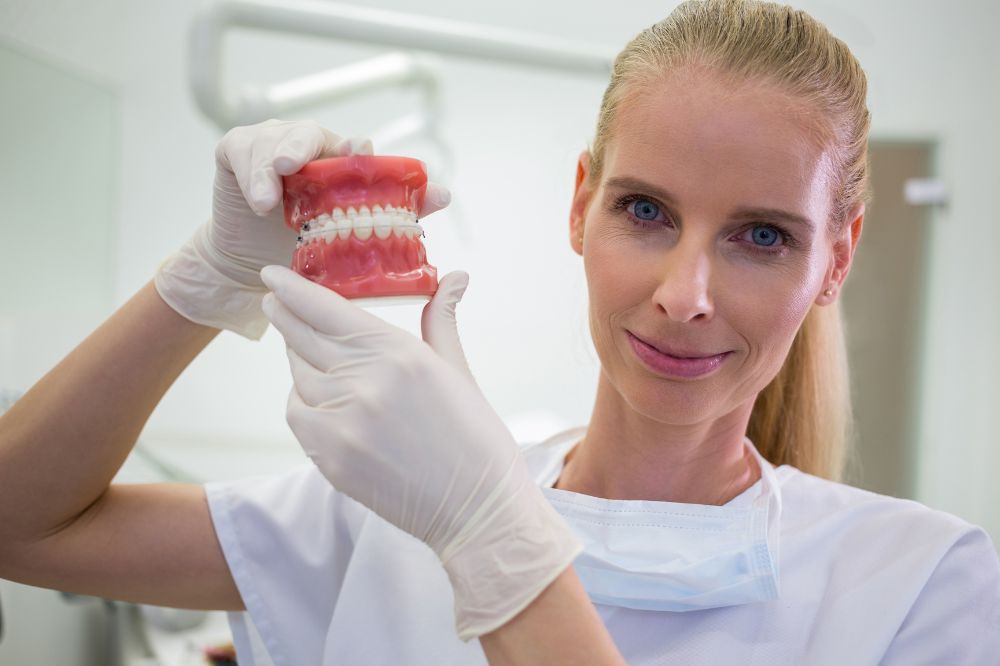
Missing teeth may affect speech, eating, and confidence. For those undergoing dentures in Vancouver as part of a comprehensive restoration, dentures are often an important component of restoring oral function and form. Most people are curious about how dentures will feel and whether they will be like their natural teeth.
Dentures take a short time to get used to, and knowing what to anticipate makes it easy. Whether you are starting with prosthetic devices or switching over from an old one you have, anticipating certain things will make it easier.
What Do Dentures Feel Like at First?
When you first insert dentures, they will probably feel heavy or foreign in the mouth. Your gums, tongue, and cheeks all take time to get used to the new sensation. You might have the following the first time:
- A feeling of fullness or heaviness in the mouth
- Slight cheek or gum discomfort
- Slight difficulty articulating words when you talk
- Difficulty chewing some food types
These are all normal and usually decrease after a few weeks when your oral muscles have become accustomed to them.
How Soon Will You Feel Comfortable with Dentures?
Most patients adapt to their dentures in 2 to 4 weeks. In this period, follow instructions from the prosthodontist near you to make the transition easier. Adaptation tips are:
- Begin with soft foods and progress toward harder foods
- Practice speaking out loud to regain clarity of speech
- Use denture adhesive if advised for increased stability
- Follow up with visits to check fit and comfort
The patients who choose dentures in Vancouver usually get personal suggestions for an easier transition.
Tips to Make Dentures Feel More Natural
Dentures may never feel exactly like natural teeth, but they can come close with proper care and technique. Consider the following useful tips:
- Keep dentures clean to prevent irritation or bacterial buildup
- Handle them with care to avoid warping or damage
- Remove them at night to allow gum tissues to rest
- Store them in water or a denture solution to retain shape
If discomfort persists after several weeks, your prosthodontist in Vancouver can evaluate the fit and make adjustments as needed.
What to Expect with Speech and Eating
Speech may sound slightly different in the beginning, especially with certain sounds like “s” and “f.” Repetition and practice will help normalize your pronunciation. Try reading aloud or speaking slowly to build confidence.
Eating will also require patience and practice. Early on, avoid sticky or tough foods and focus on:
- Cutting food into smaller pieces
- Chewing on both sides
- Avoiding extremely hot items until sensitivity fades
These simple practices help ensure your new teeth work in harmony with your bite and jaw movements.
Are Implant-Supported Dentures More Natural?
For those seeking enhanced comfort and stability, implant-supported dentures offer another option. These dentures are anchored to implants in the jawbone, providing superior support and reducing the risk of slipping. Implant-supported dentures are often included in treatment plans, especially when patients are seeking dependable function and natural-looking dentures near you.
Implant-supported dentures:
- Feel more secure and natural during chewing
- Prevent bone loss by stimulating the jawbone
- Easier to maintain long-term with proper hygiene
Consult your dental provider to see if this option is appropriate for your treatment needs.
Smart Solutions for Natural-Looking Smiles!
All things considered, there’s no better time to prioritize your oral health and confidence. Schedule a personalized consultation with ByDesign Implant Dentistry and uncover expertly tailored denture solutions that enhance everyday comfort, restore natural function, support facial harmony, and bring renewed poise to your life with every smile.
